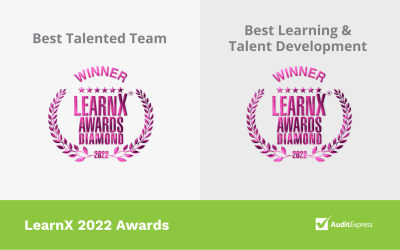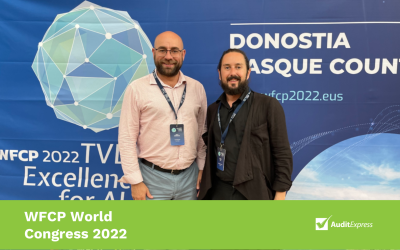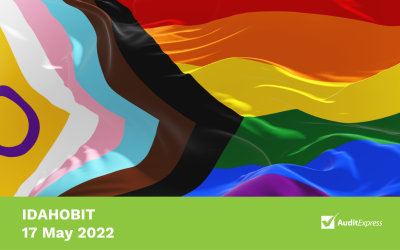Today is United Nations Day of People with Disability (IDPwD), a day observed for increasing awareness, understanding and acceptance of people with disability.
IDPwD presents an opportunity for us to have meaningful conversations about how we can make the world around us, or at least the things that we can control, an inclusive and accessible place for people with varied needs. Accessibility is crucial (and a human right) in all areas of life: in the living and working environment but also in education.
Around 18% of Australians live with some form of disability, yet students with disability are historically disadvantaged in terms of access to and participation in higher education in Australia. According to the latest Australian Bureau of Statistics release, persons aged 15-64, only 18.4% of people with disability have a bachelor degree or higher, compared to 32.8% for individuals without disability. People with disability are more likely to have attained a Certificate level qualification (27.1%) than those without disability (20.6%).
Some of this gap can be attributed to poor accessibility at physical campus locations and the inaccessibility of teaching methods and learning materials. There are many organisations in Australia that put accessibility at the centre of their operations, but there is still some way to go in making this uniform across the education sector.
GenU Training is a registered training organisation offering qualifications in disability, mental health and aged care support, and are a shining example of how educational institutions can create more flexible and inclusive spaces for people living with disability and diverse needs.
We spoke to our friends at genU Training, Lisa and Emmalie, about how they engage and include students with disability in education – here is our chat:
Audit Express:
Can you give us an intro to genU, and some comments around what you think educational institutions should be focusing on in terms of accessibility, plus what’s important to your organisation?
genU Training:
At genU Training, we deliver training to a range of people, regardless of age, demographic, or whether they were born with or acquired a disability in their life. We offer qualifications for people with an intellectual disability, as well as open employment opportunities through the community sector. Our learning materials, including written materials and our digital outlook is in line with the WTAG guidelines, and for this, we are aiming to achieve an AA rating.
It could be a range of different ways that you achieve a WTAG AA rating as an RTO or training provider: it’s the way that something’s written and presented or the contrast between colours, so content is able to be read by screen reading technology. A lot of the WTAG guidelines are very much for the vision impaired – for content to be easily accessible through a digital device.
What’s key to us is awareness – and for genU, a disability service provider, that awareness is front and centre in everything we do on a daily basis. We’re surrounded by subject matter experts and people with lived experience, through the exposure that we have within genU. Accessibility simply becomes part of what we do inherently, as opposed to something that we have to “add on”.
We believe that it’s really important to involve and invite people with lived experience into whatever training opportunity presents itself. There are ways and means not to be ‘nervous’ around that prospect. In the VET space, we talk a lot about ‘reasonable adjustments’ when it comes to compliance. But not only just in assessment and learning, it’s around adjusting environments to allow a level of comfort for someone accessing training in our properties as well.
In regards to accessibility within our buildings, they need to meet Disability Discrimination Act regulations. For someone with a physical limitation, there should be no barrier to education or to being part of our organisation. We consider things such as access points, the size of the doorways, availability of accessible toilets. We make sure that we’ve got provisions for a range of different people who may need to use the buildings, and that our spaces are open and inclusive to everybody.
We even have a couple of staff here who require physical therapy during the day, so we’ve provided a space where they can access a massage table here on site. It’s not unlike a breastfeeding parent or someone with religious needs: we ensure we have a private space for people to do what they need to do without judgment.
We feel that it’s about ensuring that disability is not a barrier to being involved in any form, whether that be education or work. These sorts of accommodations are definitely something that is well documented in VET when providing supports and adjustments, but I think at genU we’re exceptionally good at providing support needed for any student, whether they’re doing a two hour workshop or undertaking a 12 month course with us.
There’s a huge amount of value in bringing lived experiences into any learning environment and using that to inform what you do. When we speak to our learners, we find that the reasons for them selecting vocational courses that we deliver is often due to their own lived experience, their caring responsibilities or their experiences in life where they’ve had interactions with a person who has a disability or mental health condition – this is often a reason for them to pursue disability support training.
Interestingly, in recent times, we’ve seen that the COVID-19 pandemic has actually encouraged some people with disability, who have previously been nervous to participate in education, to join us in a virtual space because of the increased accessibility that brings. Moving to online learning has removed at least the physical barrier of getting yourself from home into the training site.
We’ve even seen some individuals with mental health or psychosocial disabilities at times prefer online training. Not having to physically attend a class and being able to control their environment has its benefits. It takes that block away from joining a classroom environment, especially for people who may not have been in a classroom since they were in school or people who may have had a negative experience with education previously. In that sense, we feel there have been some positives to come out of COVID-19!
Also, the increased availability of disability apps and tech is enabling people who may be vision impaired, or have auditory disabilities, to be able to access so much more learning, and to be more a part of the community – and really, to experience life as they should be able to.
Audit Express:
What can you recommend for educational institutions with less of a background in disability – where should they start in assessing and making changes to ensure accessibility?
genU Training:
We think it’s about going straight to the source: there’s a huge amount of generosity in people with lived experience, who are happy to provide advice and direction on the topic. It’s about being willing to be vulnerable, asking questions and ultimately, being open to receiving advice and making changes.
There’s such a wealth of knowledge and information in the community of lived experience. For us, that feedback mechanism with our students is really valuable. We are learning all the time – if things aren’t working, we listen and change what we’re doing.
We’ve also got some amazing guest speakers who we’ve engaged to come in and speak with our learner cohorts about advocacy, disability and workplaces and the kinds of questions to ask of learners, which we’ve found really valuable. We’ve got a list of different people that we tend to check in with, and who are always a great point of reference for us.
If you were to start from scratch, it’s about how you communicate with your community and ensure inclusiveness for everyone. We recently undertook a survey around confidence in being able to communicate with people with a disability, whether it be flashcards or written word; exploring what it is that would help somebody be able to communicate what they need.
Having that confidence allows people then to open up the conversation to what else they may need to change within their RTO or their business in general. From a customer service point of view, that’s the starting point: being able to connect with your learners and with the community in an accessible way.
The more complex task is actually reviewing your learning materials and asking: is this really accessible to somebody who may be visually impaired? That’s the more rigorous process, in ensuring you’re fostering an inclusive community.
Audit Express:
What benefits do you see there being for the community in being a more inclusive organisation?
genU Training:
Although we think we have fantastic trainers who provide exceptional training and education, we also find that one of the greatest experiences our learners have is learning from each other. We think that learning by listening, by having conversations, experiencing life or situations through the viewpoint of someone else is incredibly powerful. Having a learner cohort that is representative of society, and all of the diversity that comes with it, benefits the most – and much of that comes from interacting with each other. We think that opening the opportunity for people from all backgrounds to interact and learn with each other helps remove some of the fear of not knowing what to do or say around people with different abilities.
[Emmalie]: I’ll give you an example. We had a fantastic friend of ours from an RTO come in to do some videos involving some people who had lived experience with disability working together, interviewing each other about some of the things that they’ve experienced in life. It was just incredible being able to listen to those stories, but this particular lady had a vision impairment and I was providing her with some assistance to exit the building for a short break. I found myself just asking her, “What should I do?”. Because I needed to provide her the guidance and she actually gave me really clear feedback on walking too quickly, or too slowly, which we had a bit of a laugh about.
It’s about being open to the experience and saying, ‘I’m going to ask you how I’m going with this’. I think that’s where, in training, people with different abilities do learn from each other. Having that sense of openness and not being afraid to ask questions – that’s where our learners tell us it’s as important for us to learn from each other’s experience as it is to learn words on a page.
Ultimately, we think that committing to being an accessible learning institution is about having an openness to a rich and diverse community, understanding that disabilities take many forms, and to really commit to being inclusive in everything that you do.
Further Resources:
Below are a few resources that can help guide you in making your spaces and teaching resources accessible for everyone:
- Australian Institute for Teaching and School Leadership: Inclusive education: Teaching students with disability
- Unbound: Meeting the Accessibility Needs of Adult Students in Online Classes
- University of Washington: A Tutorial for Making Online Learning Accessible to Students with Disabilities



